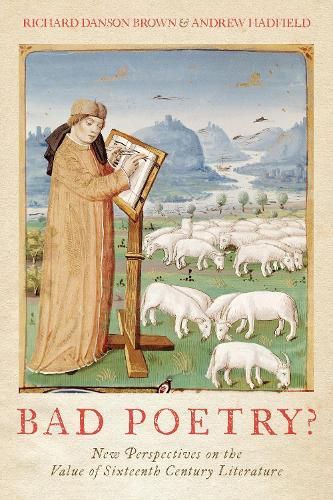Readings Newsletter
Become a Readings Member to make your shopping experience even easier.
Sign in or sign up for free!
You’re not far away from qualifying for FREE standard shipping within Australia
You’ve qualified for FREE standard shipping within Australia
The cart is loading…






An examination of the messy, often contradictory processes of poetic production and reception. The volume offers an invitation to read widely, question deeply and think critically.
In the wake of C. S. Lewis's still-contested taxonomy of 'drab' and 'golden' poetic ages, this volume rethinks the critical and aesthetic stakes of bad poetry in early modern England-not to dismiss it, but to ask what it meant, how it functioned, and why it mattered.
Revisiting poets like Arthur Gorges, Walter Ralegh, Thomas Lodge, and Thomas Churchyard, contributors interrogate the literary marketplace, aesthetic judgment, and evolving generic conventions between 1520 and 1609. Through close readings of works by Spenser, Shakespeare, Skelton, and others-alongside notorious outliers like Richard Stanyhurst-the collection considers poetic failure as both historical artifact and interpretive opportunity. From the clumsy excess of hexameters to the ideological weight of neo-Latin verse, from scribal emendations of Mother Hubberds Tale to the uncertain metrical charge of the lengthy fourteener, these essays reveal how poets and readers alike navigated shifting ideas of taste, style, and literary value.
Grounded in close reading, textual scholarship, and formal analysis, this collection offers a model of sustained, comparative literary criticism that is both theoretically engaged and deeply historicised. It foregrounds the interpretive value of stylistic awkwardness and aesthetic resistance while charting the long afterlives of poetic judgment from Lewis to the present.
$9.00 standard shipping within Australia
FREE standard shipping within Australia for orders over $100.00
Express & International shipping calculated at checkout
Stock availability can be subject to change without notice. We recommend calling the shop or contacting our online team to check availability of low stock items. Please see our Shopping Online page for more details.
An examination of the messy, often contradictory processes of poetic production and reception. The volume offers an invitation to read widely, question deeply and think critically.
In the wake of C. S. Lewis's still-contested taxonomy of 'drab' and 'golden' poetic ages, this volume rethinks the critical and aesthetic stakes of bad poetry in early modern England-not to dismiss it, but to ask what it meant, how it functioned, and why it mattered.
Revisiting poets like Arthur Gorges, Walter Ralegh, Thomas Lodge, and Thomas Churchyard, contributors interrogate the literary marketplace, aesthetic judgment, and evolving generic conventions between 1520 and 1609. Through close readings of works by Spenser, Shakespeare, Skelton, and others-alongside notorious outliers like Richard Stanyhurst-the collection considers poetic failure as both historical artifact and interpretive opportunity. From the clumsy excess of hexameters to the ideological weight of neo-Latin verse, from scribal emendations of Mother Hubberds Tale to the uncertain metrical charge of the lengthy fourteener, these essays reveal how poets and readers alike navigated shifting ideas of taste, style, and literary value.
Grounded in close reading, textual scholarship, and formal analysis, this collection offers a model of sustained, comparative literary criticism that is both theoretically engaged and deeply historicised. It foregrounds the interpretive value of stylistic awkwardness and aesthetic resistance while charting the long afterlives of poetic judgment from Lewis to the present.